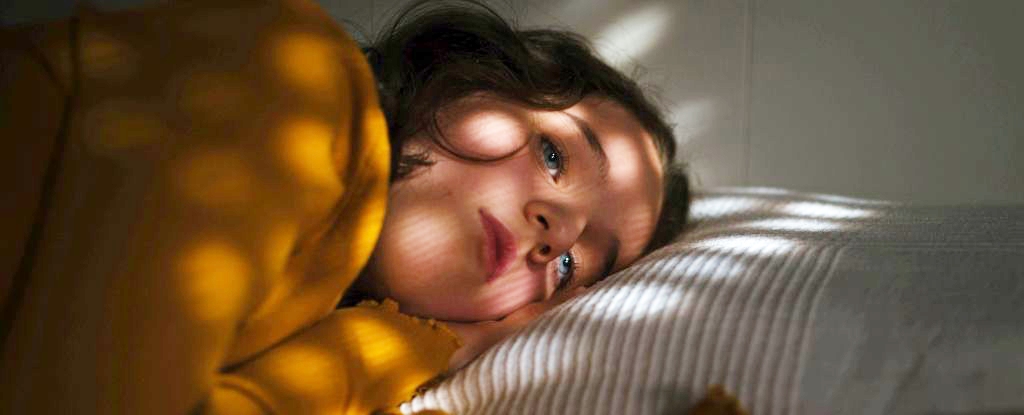ARTICLE AD
This week’s episode of The Acolyte took us back to the planet Brendok to learn the truth about what happened the night Osha and Mae’s lives changed forever. In doing so, it brought with it even more mysteries shrouded in darkness—not just about all the characters at play during those events, but the very nature of the powers at hand. It was a fine line for series architect Leslye Headland to balance, both in what it communicated to the audience, and how it connected to the wider Star Wars saga.

“Choice,” the penultimate episode of The Acolyte, went back in time to the night the witch coven was burned down. It revealed that the reason the four Jedi—Sol, Indara, Torbin, and Kelnacca—were stationed on the world was not because they were aware of the coven’s existence, but because Brendok itself was the site of a “vergence” in the Force. The phrase was first used in Star Wars when Qui-Gon Jinn described his discovery of Anakin Skywalker in The Phantom Menace. In The Acolyte Brendok’s vergence is explained to the audience (by Indara, to her padawan Torbin) as a “concentration of Force energy,” one powerful enough that it could manifest life itself. But unlike The Phantom Menace, where Qui-Gon described Anakin himself as a vergence, in The Acolyte, the vergence formed around some nebulous location on Brendok, rather than an individual being… or, as we were already aware, the mysterious power that helped birth Osha and Mae in the first place.
“This was very important to me, [Lucasfilm Chief Creative Officer] Dave Filoni, and to [Lucasfilm story group creative] Pablo Hidalgo, that [Osha and Mae] are not a vergence. The girls themselves are not a vergence in the Force,” Headland recently explained as part of a wide-ranging interview with Nerdist. “However they got here … the act of creating them was going to need amplification, therefore, we came around to the decision that the vergence was on Brendok, and that it would remain mysterious. So that way, if we went back there in future tellings of the story, we could uncover a little bit more about what is actually there. It was important that this type of vergence was a natural one as opposed to within a human being or an alien.”
It was this clear differentiation for Headland that also played a part of what became a wider conversation around The Acolyte earlier in the season, when the third episode—another Brendok flashback—teased the nature of Osha and Mae’s conception as being almost akin to the way Anakin came into being, as part of the Jedi Chosen One prophecy. “The girls are guinea pigs. They’re patient zero for this sort of power. It didn’t work perfectly. Therefore the girls on their own can never be as powerful as Anakin,” Headland explained. “Their full potential together has yet to be explored. They’ve been separated too long. It’s like when you’re doing an experiment and it’s the first round of it. They are maybe not the first, but one of the first experiments of this particular use of power.”
“So the twins are weaker than Anakin, for sure. They are going to fall short of what will eventually become the Chosen One. They will never achieve what that is, because in my mind, Aniseya could only do so much,” Headland continued. “She’s not powerful enough to create one person. The twins split, Aniseya’s power split, and therefore a lot of her philosophy is about the power of two. About the fact that they must stay together.”
But to Headland, The Acolyte also differentiated Osha and Mae’s circumstances even further by combining multiple spiritual approaches in their creation: the amplification of this “vergence,” the Force itself, and a separate kind of magic—something we’ve already seen in Star Wars through cultures like the Nightsisters of Dathomir. “The Nightsisters utilize magic exclusively. With my witches, it’s a bit of a hybrid. They’re definitely dabbling in the Force and calling the Force by a different name. They’re trying to cultivate their sensitivity to it without having to be trained by the Jedi,” Headland added. “[The witches]… they’re utilizing not just wherever the vergence may be physically on the planet, but the eclipse. These powerful movements of heavenly bodies and whatever’s under the earth, that type of thing, what is meant to be expressed there is that they are drawing their power from nature, magic, and the Force. So we never sort of go, ‘They’re using magic the way that the Nightsisters are. They’re using the Force even though they’re not Jedi.'”
“To me it felt more interesting to show a group of people, a group of witches, having abilities that the Jedi could not pinpoint. That they Jedi weren’t going, ‘Oh, well, that’s magic. Oh, well, that’s the Force,'” Headland concluded. “That’s one of the reasons they get so thrown off by what they’re seeing. It’s so unpredictable, and it’s difficult for them to categorize and then report back to the Council.”
Head on over to Nerdist to read more of Headland’s thoughts about The Acolyte‘s penultimate episode, as well as teases for what to expect in the finale—and even more, if the series should return for an as-yet-unconfirmed second season.
Want more io9 news? Check out when to expect the latest Marvel, Star Wars, and Star Trek releases, what’s next for the DC Universe on film and TV, and everything you need to know about the future of Doctor Who.

 4 months ago
13
4 months ago
13 

